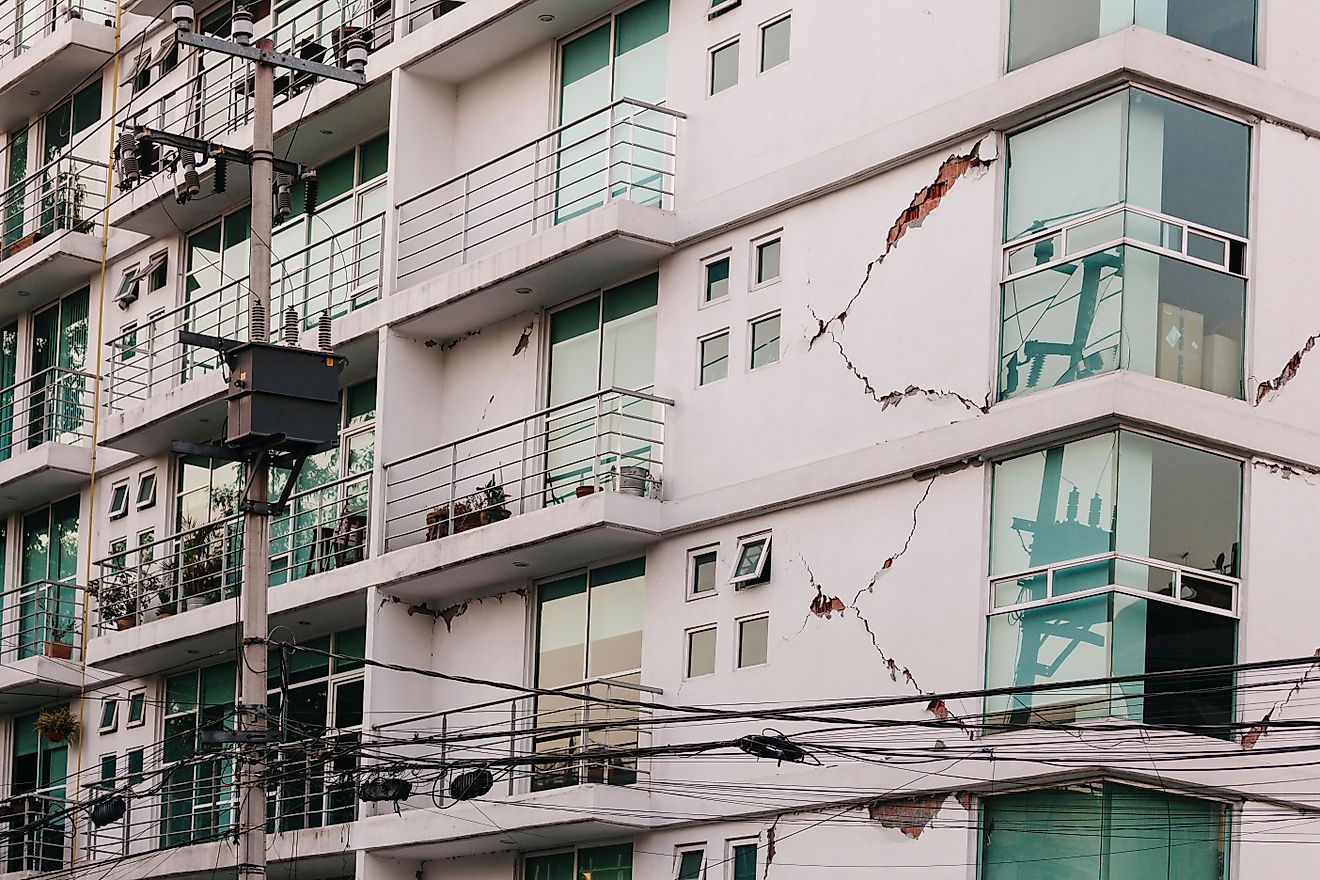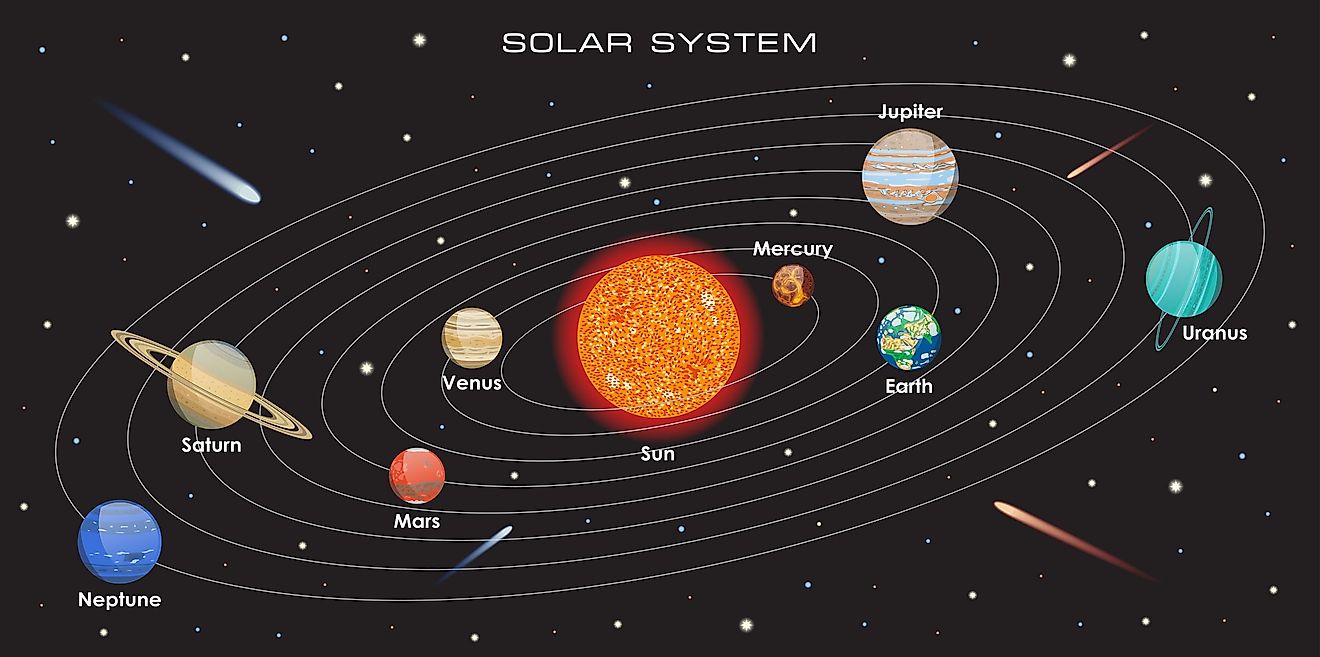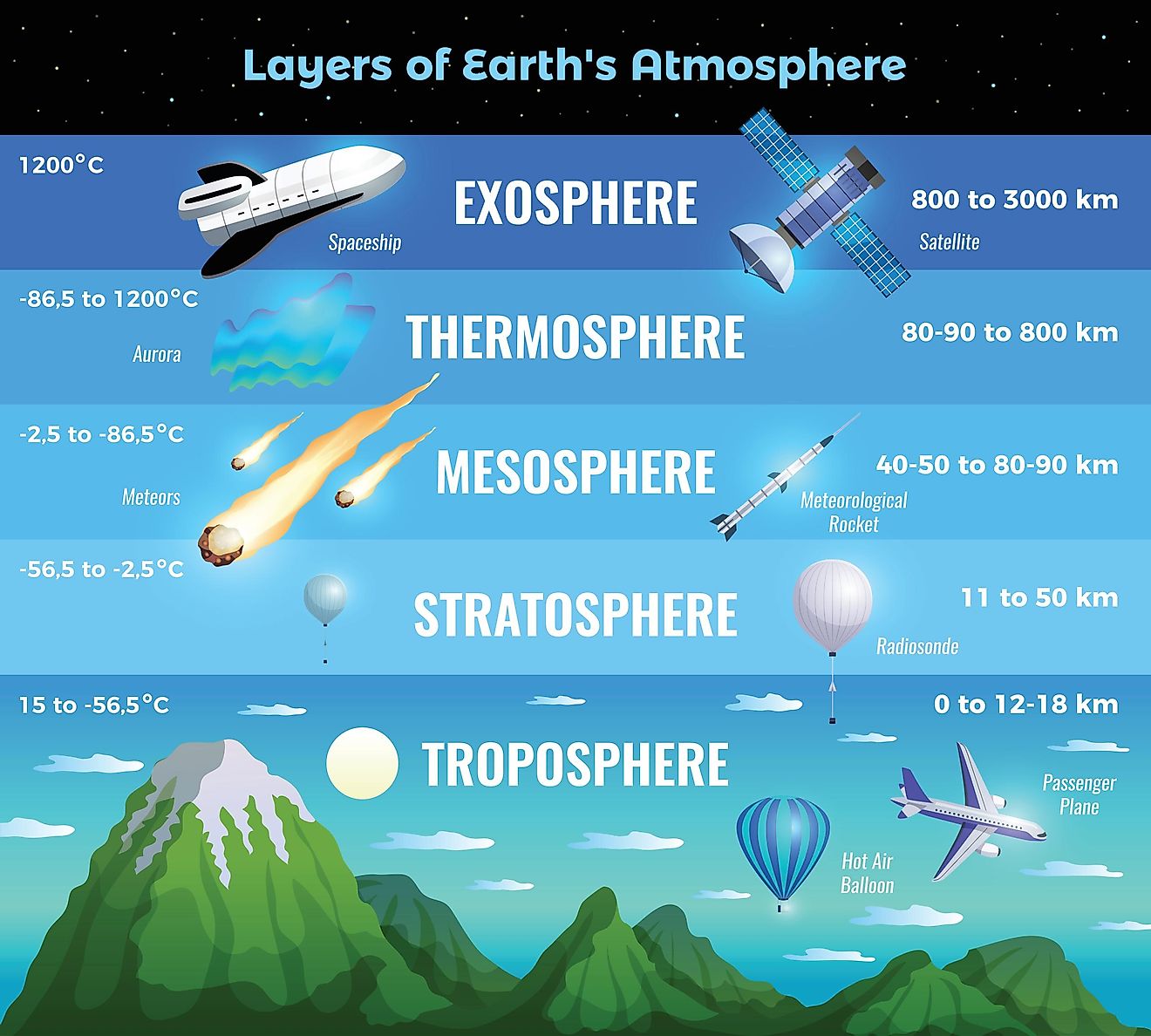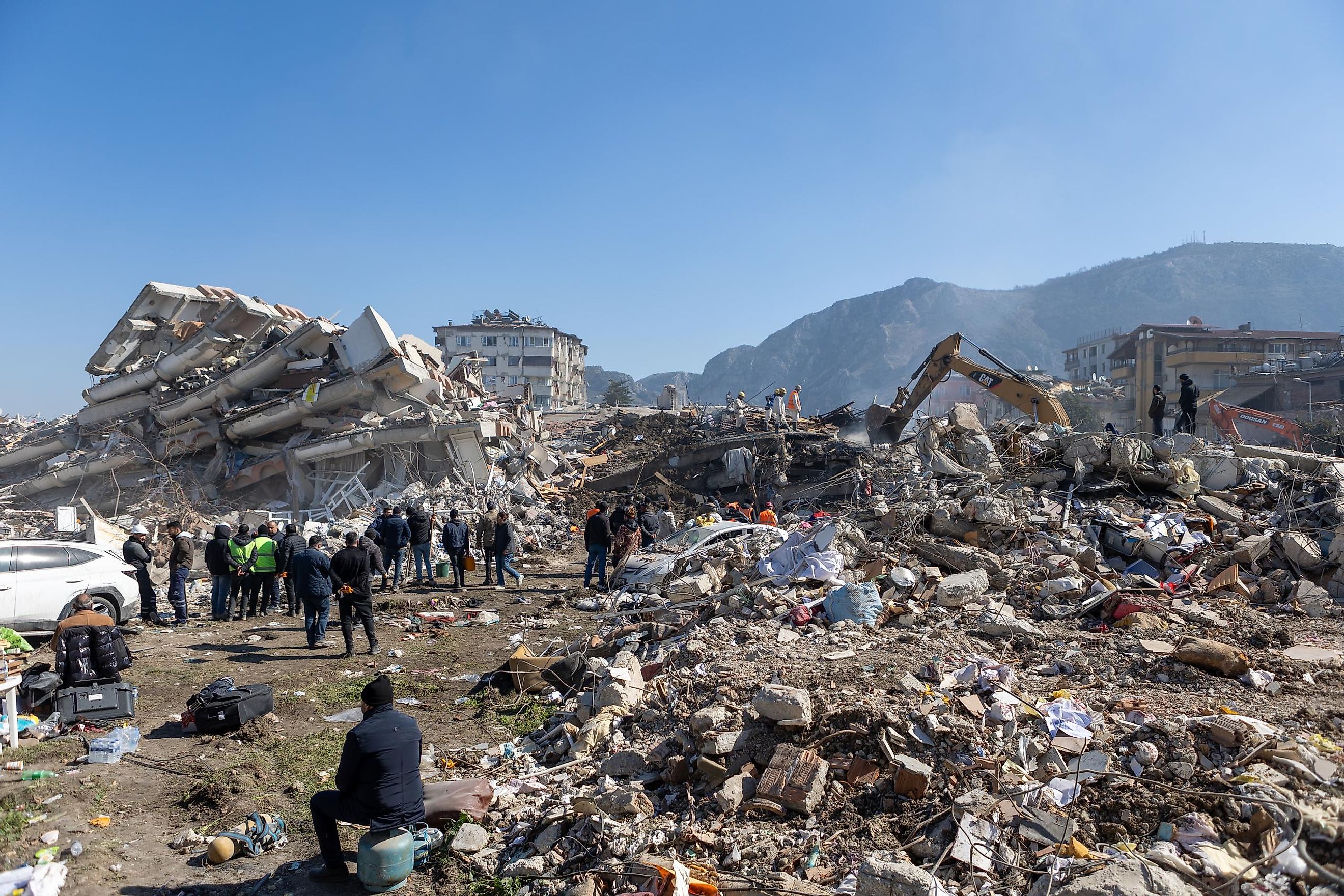
The Deadliest Earthquakes Of The 21st Century
The 21st century has not been spared from the wrath of Mother Nature. On numerous occasions, entire nations have been brought to their knees in one way or another. However, no other part of the world suffered like South East Asia did during the Indian Ocean Earthquake in 2004. Claiming the lives of hundreds of thousands of people in the blink of an eye, it remains the worst earthquake of the 21st century by a significant margin.
The Deadliest Earthquakes Of The 21st Century
| Rank | Event | Death Toll | Magnitude |
|---|---|---|---|
| 1 | Indian Ocean Earthquake and Tsunami (2004) | 227,898 | 9.1 |
| 2 | Haiti Earthquake (2010) | 160,000 | 7 |
| 3 | Sichuan Earthquake (2008) | 87,587 | 7.9 |
| 4 | Kashmir Earthquake (2005) | 87,351 | 7.6 |
| 5 | Turkey-Syria Earthquakes (2023) | 62,013 | 7.8 |
| 6 | Bam Earthquake (2003) | 26,271 | 6.6 |
| 7 | Gujarat Earthquake (2001) | 20,085 | 9 |
| 8 | Tōhoku Earthquake and Tsunami (2011) | 19,759 | 7.7 |
| 9 | Nepal Earthquake (2015) | 8,964 | 7.8 |
| 10 | Yogyakarta Earthquake (2006) | 5,782 | 6.4 |
Indian Ocean Earthquake and Tsunami (2004)
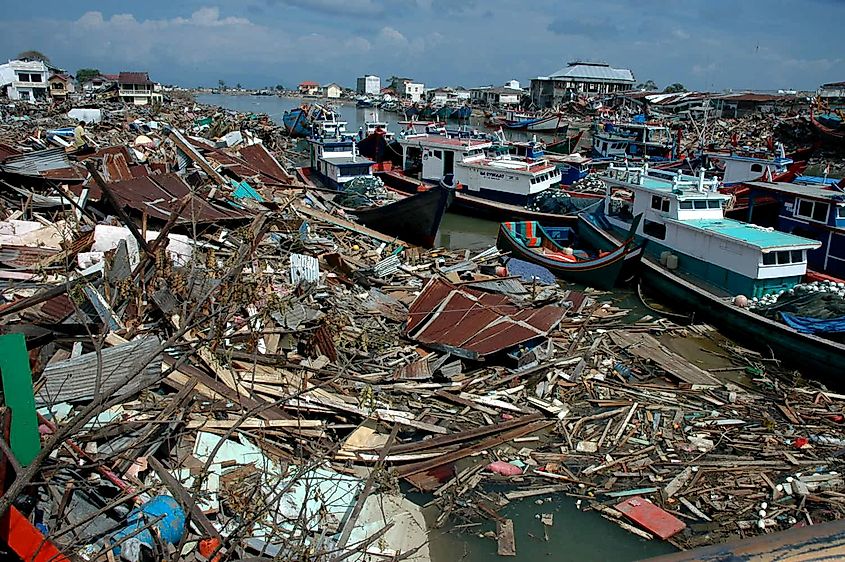
The worst earthquake in the 21st century thus far took place on December 26, 2004. Its epicenter was in the Indian Ocean rather than directly on land. The earthquake itself was hardly noticed but the tsunami that was created as a result cost the lives of more than 200,000 people.
The waves from the tsunami reached as far as Eastern Africa but it was Indonesia that was most affected. When the waves, which reached as high as 100 feet high (30.5 meters) crashed into the city of Banda Aceh, more than 100,000 people were killed instantly.
Haiti Earthquake (2010)
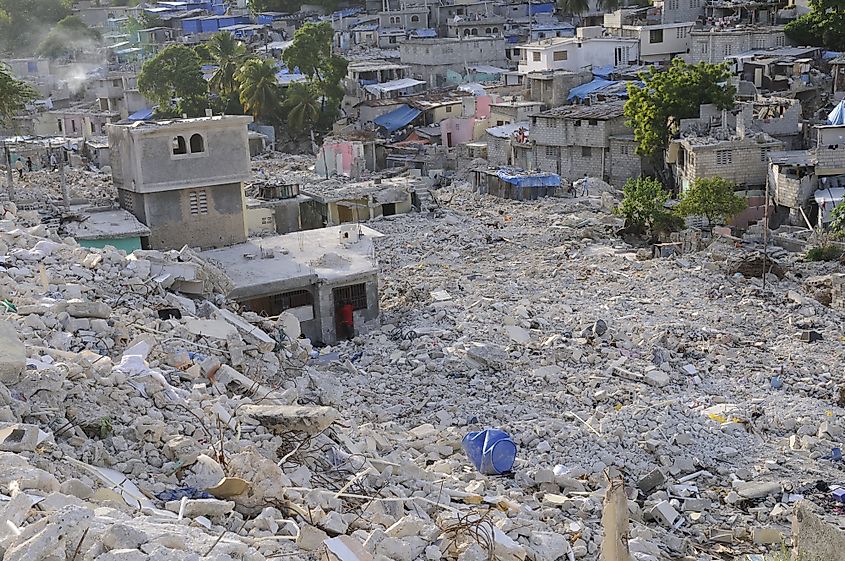
In 2010, a magnitude 7 earthquake brought about unspeakable levels of destruction to the island nation of Haiti. The epicenter of the quake was just 15 miles (25 km) southwest of the country’s capital and largest city, Port-au-Prince.
An exact death count has never been agreed upon but estimates claim nearly 160,000 people died as a result of the quake. The poor infrastructure and shoddy building practices across Haiti only exacerbated the disaster. The quake made more than 1 million Haitians homeless overnight and resulted in a humanitarian disaster that can still be seen to this day.
Sichuan Earthquake (2008)
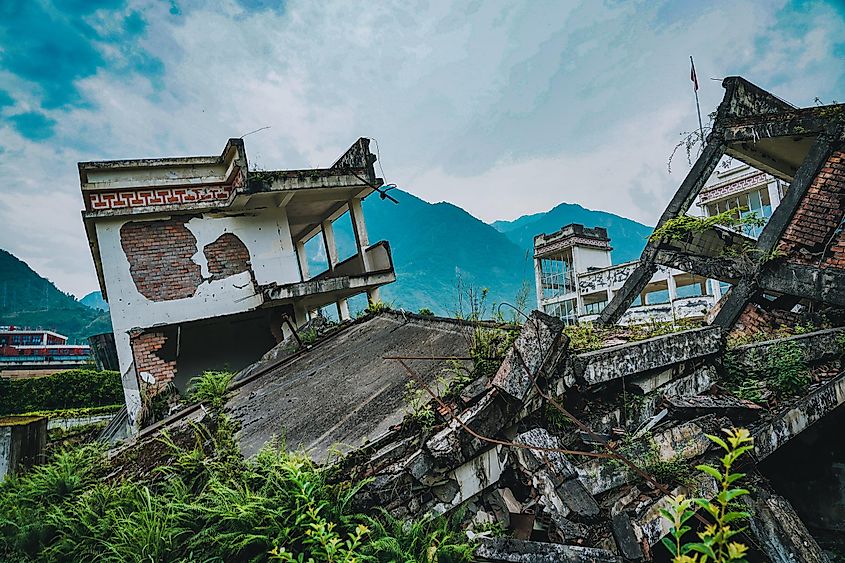
On May 12, 2008, an earthquake with a 7.9 magnitude hit the central region of the Sichuan province in China. When the tremors were over, about four-fifths of the structures in the affected area were flattened. Entire villages and towns were destroyed.
The official number of people killed by the quake was 87,587. Nearly 375,000 people were also injured in the disaster, and millions were made homeless. The quake also caused intense flooding and landslides which only made relief even more difficult.
Kashmir Earthquake (2005)
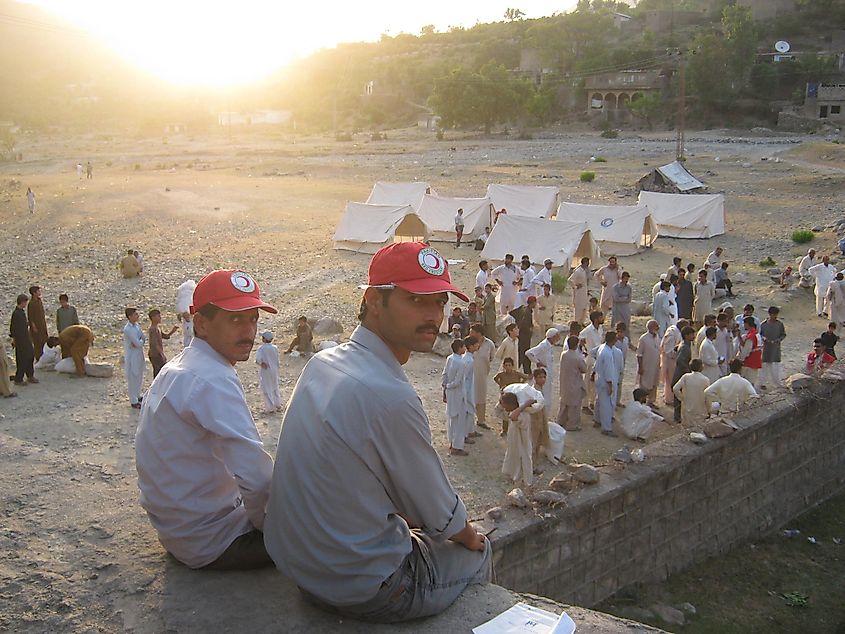
On October 8, 2005, a strong, 7.6 magnitude earthquake rocked the northern region of Pakistan, Kashmir. Total casualties numbered 87,351. An additional 38,000 people were injured in the disaster, and millions were left homeless.
In addition, approximately 780,000 buildings were either destroyed outright or damaged beyond repair. The effect the earthquake had on local agriculture was catastrophic. Nearly 250,000 farm animals died and thousands of acres of farmland were rendered useless.
Turkey-Syria Earthquakes (2023)
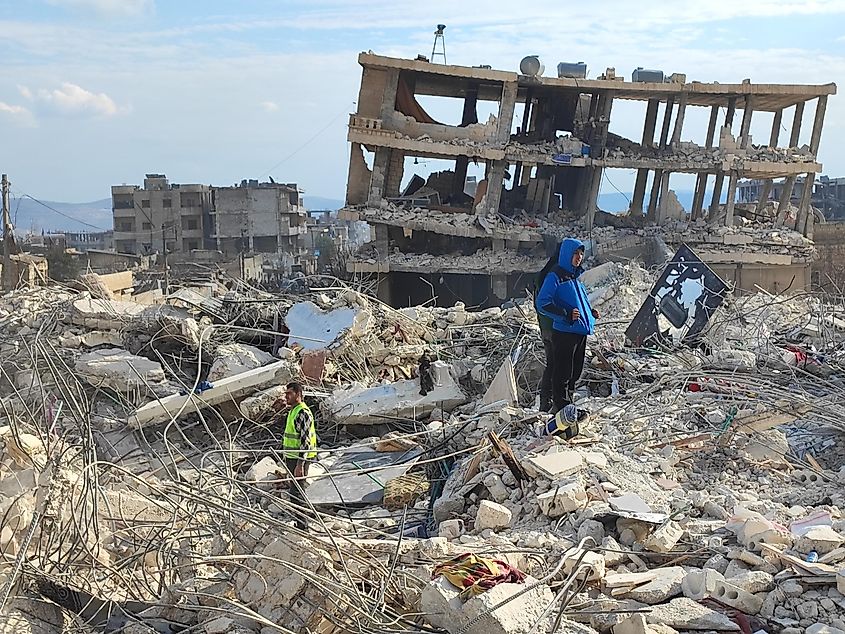
In early February 2023, an enormous 7.8 earthquake struck in Eastern Turkey and Northern Syria. This was the second-worst earthquake in Turkey's history and claimed the lives of over 60,000 people.
The lethality of the earthquake was credited to the lack of safety precautions in both Syria's and Turkey's building codes. Large apartment complexes crumbled without much resistance as entire neighborhoods came crashing down. Recent figures suggest that roughly 1.5 million people were left homeless as a result.
Bam Earthquake (2003)
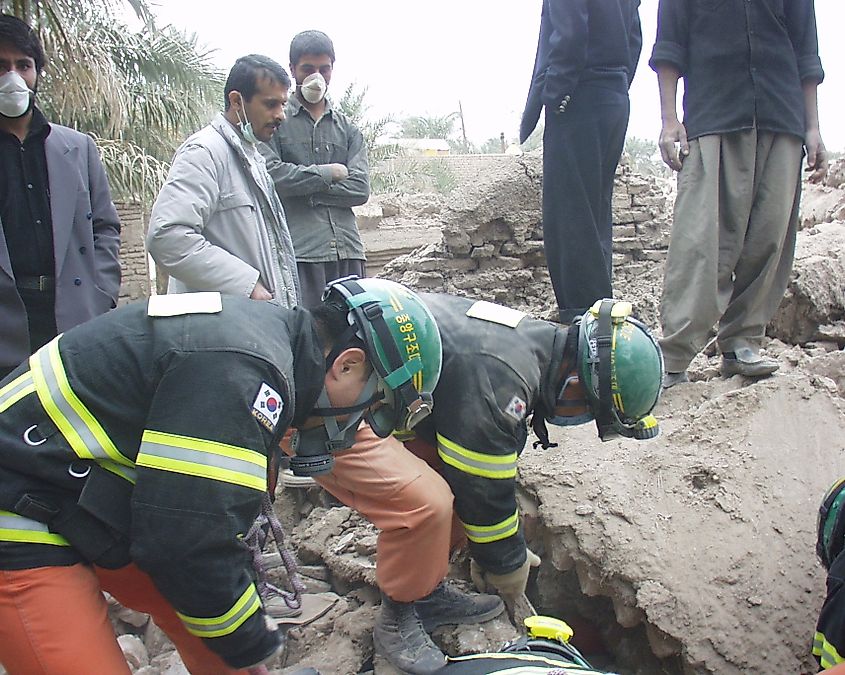
On December 26, 2003, a magnitude 6.6 earthquake shook the Iranian city of Bam. This quake was the worst that Iran had suffered in more than 30 years. Casualties from the disaster totaled 26,271, though some estimates put this number much higher, at upwards of 43,000.
The quake also destroyed all the hospitals and health centers in the area, where up to 30,000 people were injured. In addition, 75,000 people were made homeless. Experts have blamed poor building methods and lax regulations for the high number of casualties.
Gujarat Earthquake (2001)
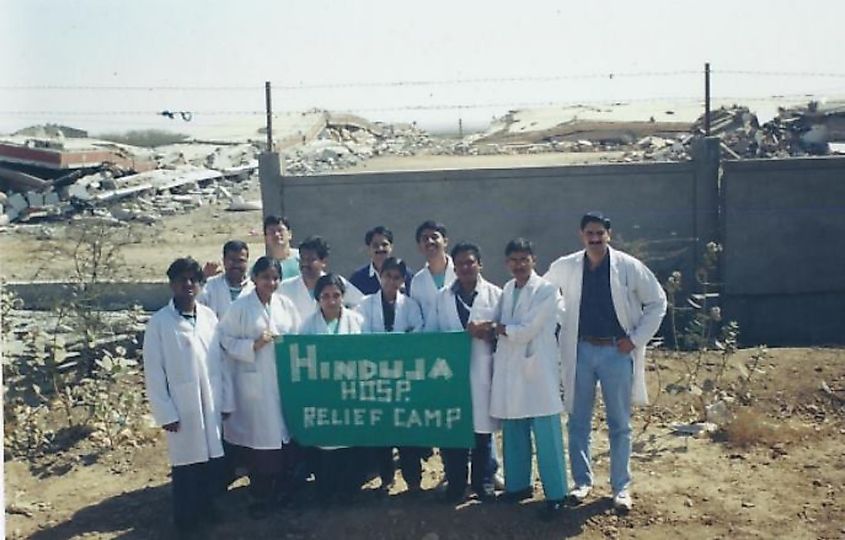
On January 26, 2001, a magnitude 7.7 earthquake hit the Indian province of Gujarat. The quake happened to hit on the same day Indians were celebrating Republic Day commemorating the creation of the Republic of India.
The quake killed 20,085 people and injured more than 150,000 others. The large crowds of people out in celebration only added to the death toll. Hundreds of thousands of people were also made homeless, many of whom were still living in makeshift shelters a year later.
Tōhoku Earthquake and Tsunami (2011)
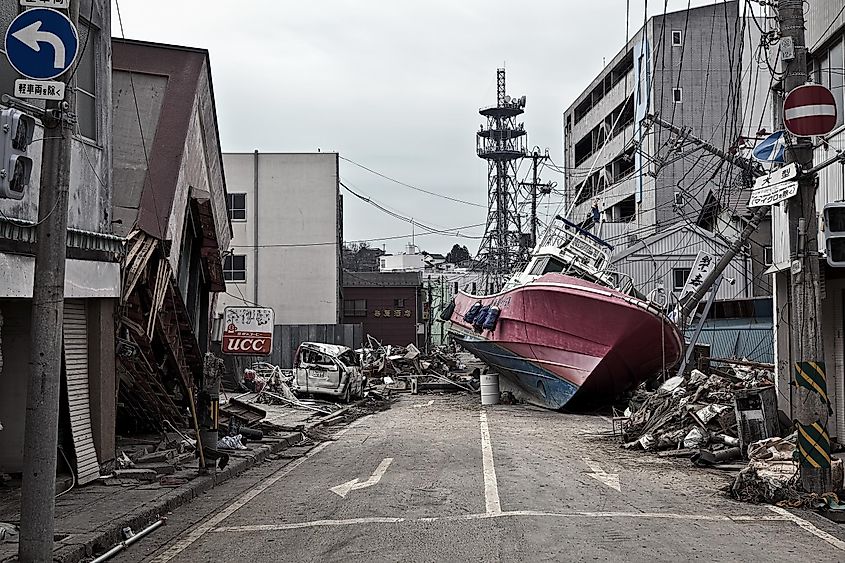
The strongest earthquake to ever hit Japan did so on March 11, 2011, with a whopping 9.0 magnitude. Similar to the 2004 Indian Ocean earthquake, the epicenter was not on land but in the Pacific Ocean. The quake triggered a tsunami with waves of up to 132 feet high (40.2m).
In the end, 20,896 people lost their lives, and 450,000 were made homeless. It is argued that more would have perished if it were not for the stellar earthquake preparations Japan had at the time. This earthquake famously resulted in the nuclear meltdown at the Fukushima Daichi Nuclear Power Plant, one of the worst environmental disasters in recent memory.
Nepal Earthquake (2015)

On April 25, 2015, a 7.8 magnitude earthquake struck Nepal near the country’s capital, Kathmandu, killing 8,964 people and injuring thousands more. Nepal is one of the most mountainous countries on Earth, the earthquake led to a series of devastating landslides.
The quake even triggered an avalanche on Mt. Everest that killed 19 climbers and stranded hundreds of others. More than 600,000 structures in the capital were damaged or destroyed. This was the worst earthquake in Nepal’s history since 1934.
Yogyakarta Earthquake (2006)
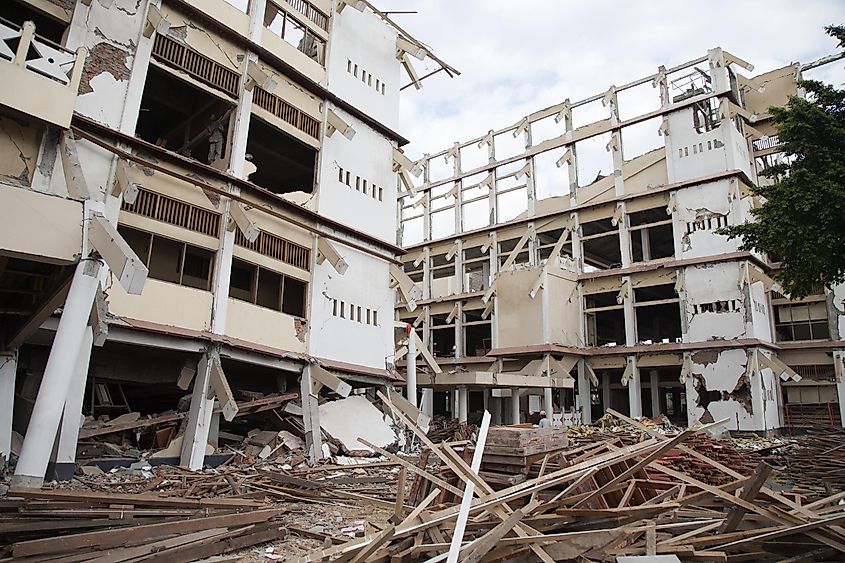
On May 26, 2006, a 6.4 magnitude earthquake hit the Indonesian island of Java. The area hit is one of the most densely populated places on Earth. The quake destroyed homes, hotels, and government buildings in minutes.
The initial death toll was around first declared to be around 3,500 but it ended up totalling 5,782 people once the dust settled. Much of the area’s infrastructure, including roads, bridges, and utilities was destroyed as well.
Final Thoughts
So far, this century has borne witness to some truly destructive earthquakes. Earthquakes and the natural disasters that come with them are an unavoidable fact of life but that does not mean the situation is hopeless.
With each earthquake governments around the world are able to learn and better prepare for the next one. With each passing year, better building codes and government response plans are only getting better.
Top 15 Deadliest Earthquakes Of The 21st Century
| Rank | Event | Death Toll | Magnitude |
|---|---|---|---|
| 1 | Indian Ocean Earthquake and Tsunami (2004) | 227,898 | 9.1 |
| 2 | Haiti Earthquake (2010) | 160,000 | 7 |
| 3 | Sichuan Earthquake (2008) | 87,587 | 7.9 |
| 4 | Kashmir Earthquake (2005) | 87,351 | 7.6 |
| 5 | Turkey-Syria Earthquakes | 62,013 | 7.8 |
| 6 | Bam Earthquake (2003) | 26,271 | 6.6 |
| 7 | Gujarat Earthquake (2001) | 20,085 | 9 |
| 8 | Tōhoku Earthquake and Tsunami (2011) | 19,759 | 7.7 |
| 9 | Nepal Earthquake (2015) | 8,964 | 7.8 |
| 10 | Yogyakarta Earthquake (2006) | 5,782 | 6.4 |
| 11 | Al Haouz Earthquake (2023) | 2,960 | 6.8 |
| 12 | Yushu Earthquake (2010) | 2,698 | 6.9 |
| 13 | Boumerdès Earthquake (2003) | 2,266 | 6.8 |
| 14 | Haiti Earthquake (2021) | 2,248 | 7.2 |
| 15 | Herat Earthquakes (2023) | 1,482 | 6.3 |





